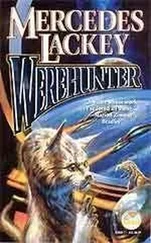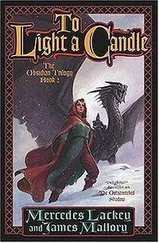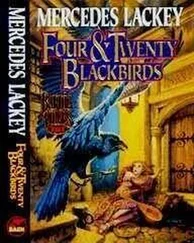She nodded, absently, her attention on the cars roaring by. Was there a faint sound of strain in her engine? For a moment her nerves chilled.
But no, it was just another acceleration; a little one, just enough to blow Jimmy around the curve ahead of the Mercedes.
Her immediate reaction was annoyance; he shouldn’t have had to power his way out of that, he should have been able to drive his way out. He was putting more stress on the engine than she was happy with.
Then she mentally slapped her own hand. She wasn’t the driver, he was.
But now she knew how Ettore Bugatti felt when she took the wheel in that first Monte Carlo Grand Prix.
“You know, Bugatti was one of my passengers,” she said, thinking aloud, without looking to see if Paul was listening. “He was with the Resistance in the Italian Alps. You had to be as much a mechanic as a driver, those ambulances were falling apart half the time, and he saw me doing both before I got him to the field hospital.”
Sometimes, she woke up in the middle of the night, hearing the bombs falling, the screams of the attack-fighters strafing the road— Seeing the road disintegrate in a flash of fire and smoke behind her, in front of her; hearing the moans of the wounded in her battered converted bread-truck.
All too well, she remembered those frantic moments when getting the ambulance moving meant getting herself and her wounded passengers out of there before the fighter-planes came back. And for a moment, she heard those planes— No, it was the cars returning. She shook her head to free it of unwanted memories. She had never lost a passenger, or a truck, although it had been a near thing more times than she cared to count. Whenever the memories came between her and a quiet sleep, she told herself that—and reminded herself why she had volunteered in the first place.
Because her brother, the darling of the Metaphysical set, was hiding from the draft at home by remaining in England among the blue-haired old ladies and balletomanes who he charmed. Because, since they would not accept her as a combatant, she enlisted as a noncombatant.
Some noncombatant. She had seen more fire than most who were on the front lines.
Bugatti had been sufficiently impressed by her pluck and skill to make her an offer.
“When this is over, if you want a job, come to me.”
Perhaps he had meant a secretarial job. She had shown up at the decimated Bugatti works, with its “EB” sign in front cracked down the middle, and offered herself as a mechanic. And Bugatti, faced with a dearth of men who were able-bodied, never mind experienced, had taken her on out of desperation.
“It was kind of a fluke, getting to be Bugatti’s driver,” she continued, noting absently that Paul was listening intently. “The driver for that first Grand Prix had broken an ankle, right at starting-lineup, and I was the only one on the team that could make the sprint for the car!”
Paul chuckled, and it had been funny. Everyone else was either too old, or had war-injuries that would slow them down. So she had grabbed the racing-helmet before anyone could think to object and had taken the man’s place. In her anonymous coverall, it was entirely possible none of the officials had even noticed her sex.
She had made the first of her famous “Duncan dives” into the cockpit; a modified grand jete that landed her on the seat, with a twist and bounce down into the cockpit itself.
“I can still hear that fellow on the bullhorn—there was no announcer’s booth, no loudspeaker system—” She chuckled again. “And coming in third—Isadora Duncan?”
The next race, there had been no doubt at all of her sex. She had nearly died of heat-stroke behind that powerful engine, and she had been shocked at what that had done to her judgment and reflexes. So this time, she had worn one of her old dancing costumes, a thick cotton leotard and tights—worn inside-out, so that the seams would not rub or abrade her.
The other drivers had been so astounded that she had gotten nearly a two-second lead on the rest of them in the sprint—and two seconds in a race meant a quarter mile.
For her third race, she had been forbidden to wear the leotard, but by then she had come up with an alternative; almost as form-fitting, and enough to cause a stir. And that had been in France, of course, and the French had been amused by her audacity. “La Belle Isadora” had her own impromptu fanclub, who showed up at the race with noisemakers and banners.
Perhaps that had been the incentive she needed, for that had been her first win. She had routinely placed in the first three, and had taken home to Bugatti a fair share of first-place trophies. The other drivers might have been displeased, but they could not argue with success.
Bugatti had been overjoyed, and he had continuously modified his racing vehicles to Isadora’s specifications: lighter, a little smaller than the norm, with superb handling. And as a result of Isadora’s win, the Bugatti reputation had made for many, many sales of sportscars in the speed-hungry, currency-rich American market. And it did not hurt that his prize driver was an attractive, American lady.
But in 1953 she had known that she would have to retire, and soon. She was slowing down—and more importantly, so were her reflexes. That was when she had begun searching for a protege, someone she could groom to take her place when she took over the retiring crew-chief’s position.
She had found it in an unlikely place: Hollywood. And in an unlikely person, a teenage heartthrob, a young, hard-living actor. But she had not seen him first on the silver screen; she had seen him racing, behind the wheel of his treasured silver Porsche.
He had been torn by indecision, although he made time for her coaching and logged a fair amount of time in Bugatti racing machines. She and the retiring crew chief worked on design changes to suit his style of driving to help lure him. But it was Hollywood itself that forced his choice.
When a near-fatality on a lonely California highway left his Porsche a wreck, his studio issued an ultimatum. Quit driving, or tear up your contract. We don’t cast corpses.
He tore up his contract, took the exec’s pipe from his mouth, stuffed the scraps in the pipe, slammed it down on the desk and said “Smoke it.” He bought a ticket for Italy the same day.
“Miss Duncan?” Paul broke into her thoughts. “We have company.”
She turned, to see the crew-chiefs of Ferrari, Mercedes, Lola, and a dozen more approaching. Her first thought was— What have we done now?
But it was not what she had done, nor her crew, nor even Jimmy.
It was what Ford had done.
“Isadora,” said Paul LeMond, the Ferrari crew-chief, who had evidently been appointed spokesman, “We need your help.”
Ten years of fighting her way through this man’s world, with no support from anyone except Bugatti and a few of her crew had left her unprepared for such a statement.
She simply stared at them, while they laid out their idea.
This would be the last pit-stop before the finish, and Dora was frankly not certain how Jimmy was going to take this. But she leaned down into the cockpit where she would not be overheard and shouted the unthinkable into his ear over the roar of his engine. How the crews of every other team still on the track were fed up with the performance of the Ford drivers—and well they should be, with ten multi-car wrecks leaving behind ruined vehicles and drivers in hospital. The fact that one of those wrecks had included one of the Ford three-car flying wedges had not been good enough.
“So if Ford is going to play footsie with the rules, so are we,” she shouted. “They think you’re the best driver on the track, Jimmy. The only one good enough to beat cheaters. So every other driver on the track’s been given orders to block for you, or let you pass.”
Читать дальше












